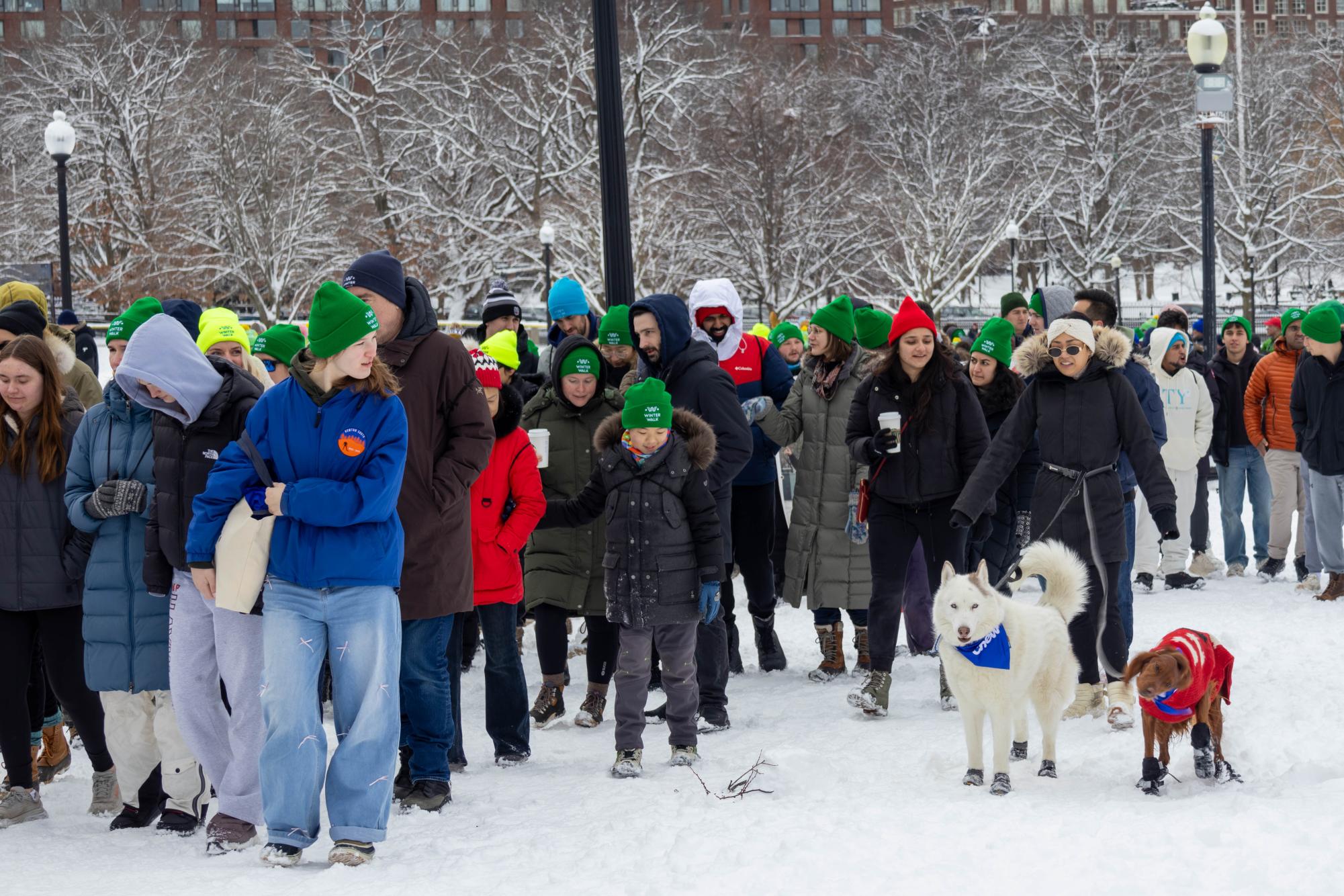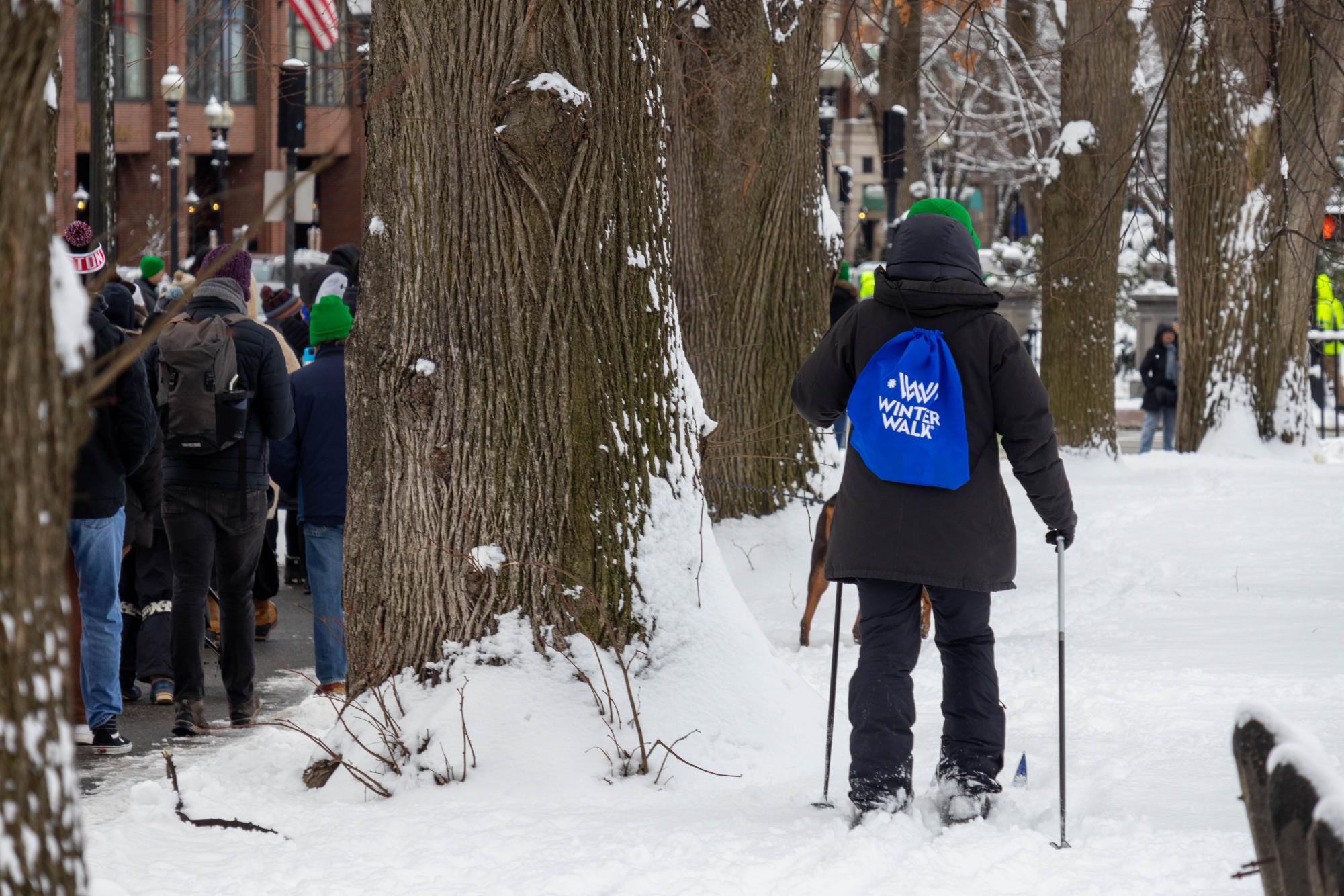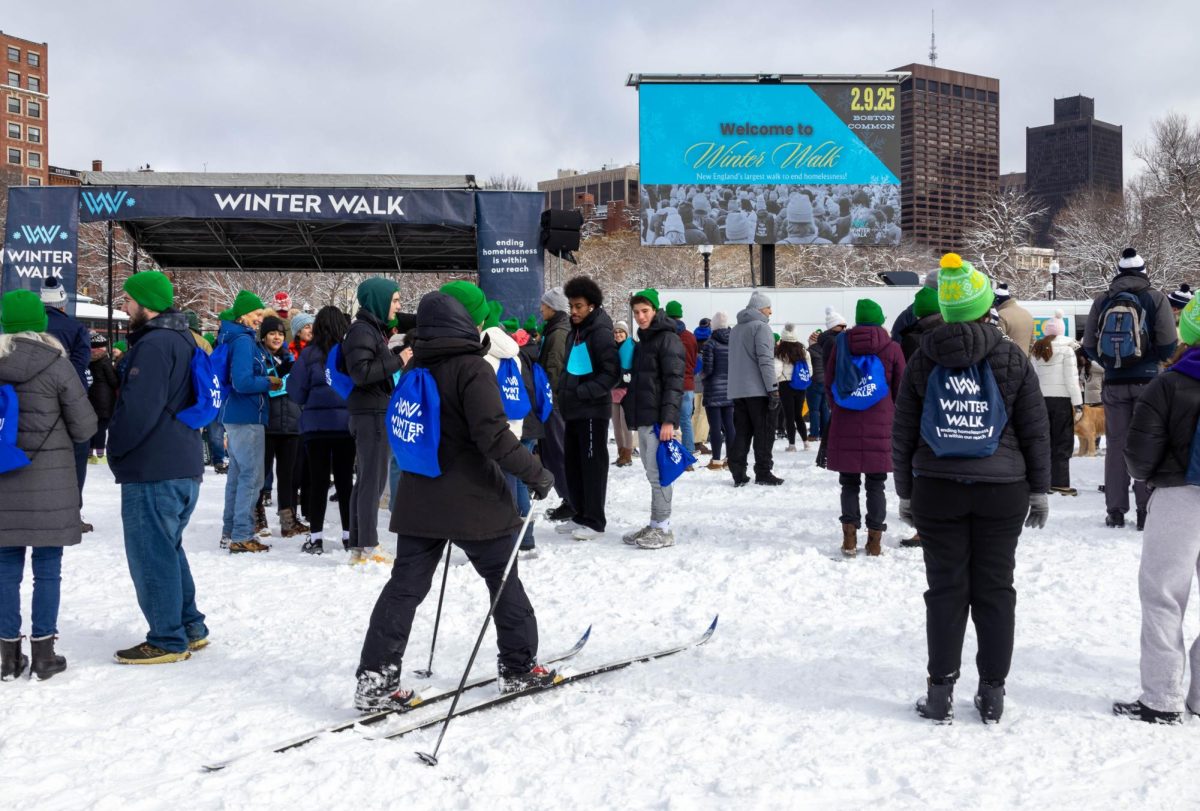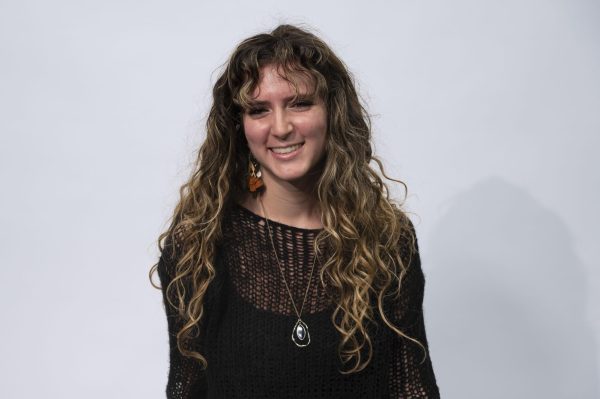Thousands of people gathered in Boston Common for the ninth annual Winter Walk Feb. 9. The walk, organized by the nonprofit organization Winter Walk, aims to end homelessness nationally. The number of people experiencing homelessness in Greater Boston rose by 67% from 2023 to 2024. Mayor Michelle Wu, City Council President Ruthzee Louijeune and Rep. Jay Livingstone joined community members at the walk.
This year, Winter Walk partnered with 17 organizations, including Pine Street Inn, Boston Healthcare for the Homeless, Women’s Lunch Place and Y2Y, and raised a total of $550,000 in funds for their efforts to alleviate the homelessness crisis.
Since co-founders Paul English, Ari Barbanell and Robyn Glaser started the walk in 2016, the event has grown into a powerful movement that raises funds for local service organizations, builds community and eliminates the stigmas associated with homelessness.
English’s commitment to the cause began when his 4-year-old son, Michael, became distressed after seeing a homeless person sleeping on the side of the street. This moment inspired English to create the nonprofit and dismantle the negative stigmas tied to homelessness.
“The heart and soul of this event is creating community,” said Meag Shaffer, chief of staff for marketing and development at Winter Walk, in her remarks. “All of us at Winter Walk believe that ending homelessness is within our reach if we come together.”
The Winter Walk encouraged both housed and homeless individuals to participate, bridging the gap between the two communities.
“When you actually talk to someone experiencing homelessness, you realize how much of their daily existence is spent just trying to find their next meal or a warm, safe place to sleep that night,” said José Rivera, a local business owner and returning participant.

Their stories reveal the invisible struggles many unhoused individuals face, often rooted in systemic challenges, such as inadequate support for mental health problems, lack of affordable housing and limited access to employment.
“I spoke with [a formerly homeless woman] about how she became homeless after leaving an abusive relationship. She had nowhere to go. It was heartbreaking to hear how hard it was for her to get help,” said Sarah Koelher, a social worker and Mission Hill resident.
“I talked to Marcus, an African-American man who recently became homeless. He lost his job during the pandemic and was evicted because he could no longer afford rent. He told me how difficult it’s been since then to find affordable housing, and honestly, hearing his story changed the way I think about homeless people” said Kabir Kalia, an engineering student at Boston College.
The Boston Foundation reported that Black and Hispanic/Latino workers in Massachusetts consistently experienced disproportionate unemployment rates over the course of 2020. This disparity, compounded by rising living costs, heightened the risk of homelessness for many residents, especially in high-cost cities like Boston. The Winter Walk aimed to close these gaps, supporting local organizations and uniting Boston’s residents to combat homelessness.
Wu spoke at the event, promising that City Hall is working toward increasing affordable housing in Boston.
“We are working every day for more affordable housing, for more services, for more connection to our community, but I cannot overstate how much it matters when community members come together and raise funds, raise awareness and most of all break the stigma that is attached to homelessness and those who are in need of support,” Wu said in her remarks.
The Winter Walk demonstrates the strength of community action in our fight against homelessness, Koelher said.
As participants left Boston Common, one message was clear: Homelessness is a crisis that demands action. Through continued advocacy, awareness and community efforts like the Winter Walk, meaningful change is possible.
“You see people from all walks of life coming together, all walking side by side and sharing their stories,” Rivera said. “It’s powerful.”











